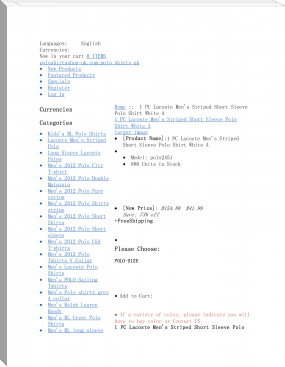The Ghost Kings - H. Rider Haggard (moboreader TXT) 📗

- Author: H. Rider Haggard
Book online «The Ghost Kings - H. Rider Haggard (moboreader TXT) 📗». Author H. Rider Haggard
She tried to forget her troubles for a little while, and began to think of Richard Darrien, her boy-lover of a long-past hour, wondering what he looked like now that he was grown to be a man.
"If only you would come to help me! Oh! Richard, if only you would come to help me," the poor, worn-out girl murmured to herself, and so murmuring fell asleep.
Suddenly it seemed to her that she was wide awake, and staring into a part of the pool beneath her where the bottom was of granite and the water clear. In this water she saw a picture. She saw a great laager of waggons, and outside of one of them a group of bearded, jovial-looking men smoking and talking. Presently another man of sturdy build and resolute carriage, who was followed by a weary Kaffir, walked up to them. His back was towards her so that she could not see his face, but now she was able to hear all that was said, although the voices seemed thin and far away.
"What is it, Nephew?" asked the oldest of the bearded men, speaking in Dutch. "Why are you in such a hurry?"
"This, Uncle," he answered, in the same language, and in a pleasant voice that sounded familiar to Rachel's ears. "That spy, Quabi, whom we sent out a long time ago and who was reported dead, reached Dingaan's kraal, and has come back with a strange story."
"Almighty!" grunted the old man, "all these spies have strange stories, but let him tell it. Speak on, swartzel." [Footnote: Black-fellow.]
Then the tired spy began to talk, telling a long tale. He described how he had got into Zululand, and reached Umgugundhlovo and lodged there with a relative of his, and done his best to collect information as to the attitude of the King and indunas towards the Boers. While he was there the news came that the white Spirit, who was called Inkosazana-y-Zoola, was approaching the kraal from Natal, where she dwelt with her parents, who were teachers.
"Almighty!" interrupted the old man again, "What rubbish is this? How can a Spirit, white or black, have parents who are teachers?"
The weary-looking spy answered that he did not know, it was not for him to answer riddles, all he knew was that there was great excitement about the coming of this Queen of the Heavens, and he, being desirous of obtaining first-hand information, slipped out of the town with his relative, and walked more than a day's journey on the path that ran to the Tugela, till they came to a place where they hid themselves to see her pass. This place he described with minuteness, so minutely, indeed, that in her dream, Rachel recognised it well. It was the spot where the witch-doctoress had died. He went on with his story; he told of her appearance riding on the white horse and surrounded by an impi. He described her beauty, her white cloak, her hair hanging down her back, the rod of horn she carried in her hand, the colour of her eyes, the shape of her features, everything about her, as only a native can. Then he told of the incident of the cattle rushing across her path, of the death of the bull that charged her, of the appearance of the furious witch-doctoress who seized the rein of the horse, of the pointing of the wand, and the instant execution of the woman.
He told of how he had followed the impi to the Great Place, of the story of Noie as he had heard it, and the reports that had reached him concerning the interview between the King and this white Inkosazana, who, it was said, advised him not to fight the Boers.
"And where is she now?" asked the old Dutchman.
"There, at Umgugundhlovo," he answered, "ruling the land as its head Isanuzi, though it is said that she desires to escape, only the Zulus will not let her go."
"I think that we should find out more about this woman, especially as she seems to be a friend to our people," said the old Boer. "Now, who dares to go and learn the truth?"
"I will go," said the young man who had brought in the spy, and as he spoke he turned, and lo! his face was the face of Richard Darrien, bearded and grown to manhood, but without doubt Richard Darrien and none other.
"Why do you offer to undertake so dangerous a mission?" asked the Boer, looking at the young man kindly. "Is it because you wish to see this beautiful white witch of whom yonder Quabi tells us such lies, Nephew?"
The shadow of Richard nodded, and his face reddened, for the Boers around him were laughing at him.
"That is right, Uncle," he answered boldly. "You think me a fool, but I am not. Many years ago I knew a little maid who was the daughter of a teacher, and who, if she lives, must have grown into such a woman as Quabi describes. Well, I joined you Boers last year in order to look for that maid, and I am going to begin to look for her across the river yonder."
As the words reached whatever sense of Rachel's it was that heard them, of a sudden, in an instant, laager, Boers, and Richard vanished. In her sleep she tried to recreate them, at first without avail, then the curtain of darkness appeared to lift, and in the still water of the pool she saw another picture, that of Richard Darrien mounted on a black horse with one white foot, riding along a native path through a bush-clad country, while by his side trotted the spy whose name was Quabi.
They were talking together, and she heard, or, at any rate, knew their words.
"How far is it now to Umgugundhlovo?" asked Richard.
"Three days' journey, Inkosi, if we are not stopped by flooded rivers," answered Quabi.
For one second only Rachel saw and heard these things, then they, too, passed away, and she awoke to see in front of her the pool empty save for its lilies, and above to hear the whispering of the evening wind among the trees.
CHAPTER XIII(RICHARD COMES)
As the sun set Rachel rose and walked to her hut. She was utterly dazed, she could not understand. Was this but a fiction of an overwrought and disordered mind, or had she seen a vision of things passing, or that had passed, far away? If it were a dream, then this was but another drop in her cup of bitterness. If a true vision--oh! then what did it mean to her? It meant that Richard Darrien lived, Richard, of whom her heart had been full for years. It meant that his heart was full of her also, for had she not seemed to hear him say that he had travelled from the Cape with the Boers to look for her, and was he not journeying alone through a hostile land to pursue his search? Who would do such a thing for the sake of a girl unless--unless? It meant that he would protect her, would rescue her from her terrible plight, would take her from among these savages to her home again--oh! and perhaps much more that she did not dare to picture to herself.
Yet how could such things be? They were contrary to experience, at any rate, to the experience of white folk, though natives would believe in them easily enough. Yet in Nature things might be possible which were generally held to be impossible. Her mother had certain gifts--had she, perhaps, inherited them? Had her helplessness appealed to the pity of some higher power? Had her ceaseless prayers been heard? Yet, why should the universal laws be stretched for her? Why should she be allowed to lift a corner of the black veil of ignorance that hems us in, and see a glimpse of what lies beyond? If Richard were really coming, in a day or two she would have learned of his arrival naturally; there was no need that these mysterious influences should be set to work to inform her of his approach.
How selfish she was. The warning might concern him, not her. It was probable enough that the Zulus would kill a solitary white man, especially if they discovered that he proposed to visit their Inkosazana. Well, she had the power to protect him. If she "threw her mantle" over him, no man in all the land would dare to do him violence. Surely it was for this reason that she had been allowed to learn these things, if she had learned them, not for her own sake, but his. If she had learned them! Well, she would take the risk, would run the chance of failure and of mockery, yes, and of the loss of her power among these people. It should be done at once.
Rachel clapped her hands, and a maiden appeared whom she bade summon the captain of the guard without the gate. Presently he came, surrounded by a band of her women, since no man might visit the Inkosazana alone. Bidding him to cease from his salutations, she commanded him to go swiftly to the Great Place and pray of Dingaan that he would send her an escort and a litter, as she must see him that night on a matter which would not brook delay.
In an hour, just after she had finished her food, which she ate with more appetite than she had known for days, it was reported that they were there. Throwing on her white cloak, and taking her horn wand, she entered the litter and, guarded by a hundred men, was borne swiftly to the House of Dingaan. At its gate she descended, and once more entered that court by the moonlight.
As before, there sat the King and his indunas without the Great Hut, and while she walked towards them every man rose crying "Hail! Inkosazana." Yes, even Dingaan, mountain of flesh though he was, struggled from his stool and saluted her. Rachel acknowledged the salutation by raising her wand, motioned to them to be seated, and waited.
"Art thou come, White One," asked Dingaan, "to make clear those dark words thou spokest to us a moon ago?"
"Nay, King," she answered, "what I said then, I said once and for all. Read thou the saying as thou wilt, or let the Ghost-people interpret it to thee. Hear me, King and Councillors. Ye have kept me here when I would be gone, my business being ended, that I might be a judge among this people. Ye have told me that the rivers were in flood, that the beast I rode was sick, that evil would befall the land if I deserted you. Now I know, and ye know, that if it pleased me I could have departed when and whither I would,





Comments (0)